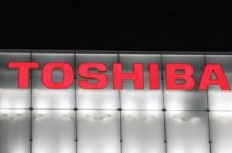Company seeking nuclear subsidies under investigation for radiation overdoses to stroke patients
 The U.S. Senate could vote as soon as next month on a proposal to give $9 billion in taxpayer-backed loan guarantees to companies planning to build new nuclear reactors -- and one of the companies seeking the aid for a project in Texas is currently under federal investigation for its role in the radiation overdoses of patients who received CT scans on its equipment.
The U.S. Senate could vote as soon as next month on a proposal to give $9 billion in taxpayer-backed loan guarantees to companies planning to build new nuclear reactors -- and one of the companies seeking the aid for a project in Texas is currently under federal investigation for its role in the radiation overdoses of patients who received CT scans on its equipment.On Saturday, the New York Times published the results of its investigation into the hundreds of radiation overdoses, which first came to light last year and triggered an ongoing probe by the U.S. Food and Drug Administration. The paper discovered that the overdoses were larger and more widespread than previously known, with patients reporting serious health problems. They face long-term risks of cancer and brain damage.
The overdoses involved brain perfusion scans, which are used to diagnose strokes by examining blood flow in the brain. Even when done properly, such scans deliver a whopping dose of radiation, comparable to about 200 X-rays.
Most of the known overdose cases involved scanners made by GE Healthcare. The biggest overdoses -- up to 13 times the proper amount of radiation -- occurred at Huntsville Hospital in Alabama, which uses GE equipment. An inquiry by GE found that hospital staff intentionally used high levels of radiation to get clearer images.
But officials at two hospitals using Toshiba scanners -- South Lake in Florida and Los Angeles County-U.S.C. in California -- said it was Toshiba that suggested machine settings that led to excessive radiation doses, the paper reported. Representatives of the Tokyo-based company initially agreed to be interviewed by the Times but later changed their minds.
Besides CT scanners, Toshiba also builds nuclear power reactors. It's part of an investment group involving New Jersey-based NRG Energy that's planning to build two new reactors at the South Texas Project near Bay City -- and the companies say they need the taxpayer-financed loan guarantees to move ahead.
They're hopeful they will get them. "I am more confident than I have ever been that our project ultimately will be awarded a nuclear loan guarantee from the United States government," NRG Energy CEO David Crane recently told Forbes.
The South Texas Project is one of three finalists being considered by the Department of Energy for the federal loan guarantees along with SCANA, which wants to build two nuclear reactors at its V.C. Summer Station near Jenkinsville, S.C., and Constellation Energy/UniStar Nuclear's Calvert Cliffs project on the Chesapeake Bay in Maryland.
Last month the U.S. Senate rejected an emergency supplemental funding bill that included $9 billion in loan guarantees for new nuclear reactors. But there's an effort underway to get that money appropriated another way.
Sen. Kay Bailey Hutchison (R-Texas) tried to get the loan guarantees attached to a bill helping small businesses -- even though no nuclear utility even remotely qualifies as a small business. Senate Majority Leader Harry Reid killed that effort.
Nuclear watchdogs are worried that Hutchison will try to attach the $9 billion in loan guarantees to Reid's energy bill. Originally set to come up for a vote today, it ran into a Republican filibuster and is now expected to be considered next month after Congress returns from recess. The bill in its current form does not offer any money for nuclear power.
To date, the federal government has authorized $18.5 billion for nuclear loan guarantees. The Department of Energy has given out more than $8 billion of that to the Southern Company to build two new reactors at Georgia's Plant Vogtle, the total cost of which is currently estimated at about $14 billion.
"These nuclear loans are taxpayer bailouts for nuclear power projects that cannot and will not succeed on their own," said Michael Mariotte, executive director of the Nuclear Information and Resource Service. "They want us to take their risks."
Given the information emerging about Toshiba's safety record, is that a risk U.S. taxpayers want to take?
Tags
Sue Sturgis
Sue is the former editorial director of Facing South and the Institute for Southern Studies.
